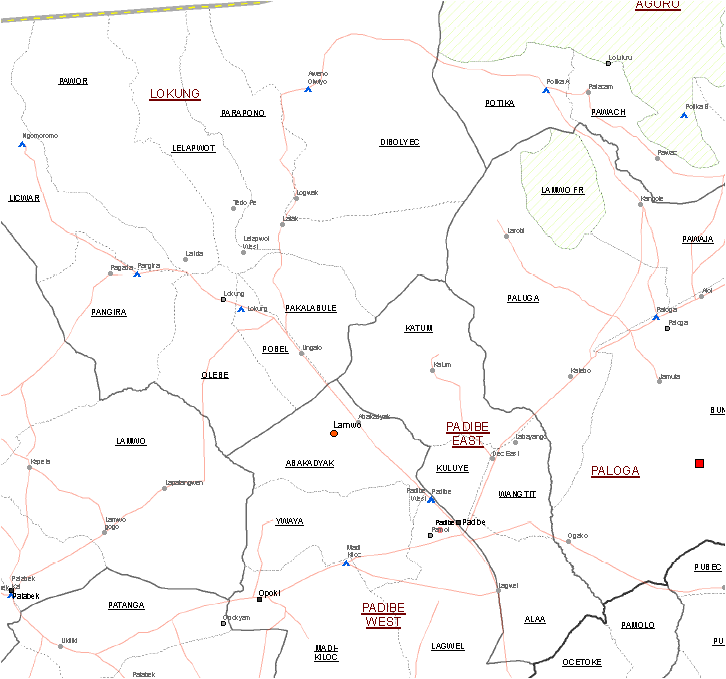This page is dedicated to general info about the area surrounding Padibe, Uganda.Â
Padibe is a major town in the far nothern area of Uganda, in Kitgum district. It is the center of an area that includes Madi Kiloc to the southwest, Lokung to the north, and Paloga to the east. The northern border of this area is Uganda’s border with Sudan.Â
  The Padibe economy is almost exclusively agricultural. Much of the land in the area is very fertile, and capable of producing high yields of produce as long as rain is steady. 2009 was a dry year and consequently yields were low. Irrigation is rarely used. Some efforts to improve agricultural production are underway, often led by non-government organisations.Â
Most people in the area are ethnic Acholis. Acholi is the commonly used language, although English is the language of instruction and many people speak English. The Acholi culture is rich and vibrant.  Generous hospitality is particularly noticeable in Acholi culture. For more on Acholi culture, see the Culture page (under construction).
Northern Uganda underwent a terribly destructive war for 28 years as the Lord’s Rebellion Army (LRA) terrorized the people under the leadership of Joseph Kony. Ostensibly to fight for the power of the people of the north and for laws in accord with the 10 Commandments, the LRA is actually a group of militants led by a rutheless warlord hungry for his own aggrandizement. The LRA forcefully conscripted over 30,000 children during the war in an endless quest for more power. Many of those came back to society, but many thousands also died in fighting. The LRA is still active in northern DRC, and despite a few half-serious attempts at dismantling the LRA, the international community has largely avoided the issue.
The effects of the war are many and widespread. The economic destruction of the war is evident, as 98% of the cattle of the area were destroyed during the war. People were herded by the Ugandan government into Internally Displaced Peoples (IDP) camps, for protection from the assaults of the LRA. As these IDP camps went on for over 15 years, much of the farming land lay fallow and reverted back to overgrown land that now has to be cleared again. Only now are many Acholi moving back to their families’ homesteads. The work of rebuilding the economy is underway, but it is a monumental task.
Just as real but less apparent are the emotional scars left behind from the war. Virtually no family in northern Uganda was left unscathed by the war. Very few households did not lose a family member to the war. Many people are still considered missing, and may be travelling with the LRA in DRC. Much emotional therapy is required as the immediacy of war fades and the ghosts of the past rise to the surface of peoples’ consciousness. However, very rarely are therapy services available to people. Of local interest, Fr. Godffrey Torac, who was once the pastor of Padibe’s Catholic parish, is now in USA studying counseling at Walsh University in an effort to bring therapy training skills back to northern Uganda.Â
Despite the war, the people of Padibe are motivated to rebuild. The Ugandan government has declared that Padibe will be the center of a new district of Uganda. Currently it is part of Kitgum district, one of the largest in land area in the country. While it is not determined when this will take place, it will inevitably bring support functions to the Padibe area.Â
Â
Â
Â
Â
